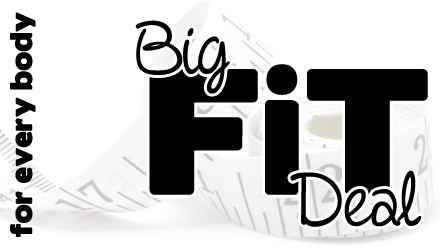Picture this: A woman asks a man if he’s ever eaten a specific fast-food item. The man gestures at his thin, muscular body and says “Please” in a sarcastic tone.
Would this scene make you laugh? Would it bother you? Would you recognize the fat hate?
The idea that thin people don’t eat fast food is absurd. The subtext that fat people are fat because they do is offensive and wrong and harmful.
Scenes like this are EVERYWHERE. I can hardly think of a TV show that hasn’t, at some point, used fat bodies as a joke. How many thin people even notice them? How many fat people see them and shrug them off — or even think “Yep, that’s fair, my body is something to be made fun of”?
This is how easy it is to spread fat hate. This is how easy it is to mock and shame and laugh at, to other fat bodies.
Pay attention. Notice how many fat people are on your screens. Notice how many of those fat people are shown constantly eating and drinking. Notice if any of those fat people are treated humanely, or if they are merely a punchline or a cautionary tale.
The show this scene took place in is called Upload, and it’s on Amazon Prime. This scene isn’t the only fat-hating part of the show, either. There are fat characters who are always shown eating; there are thin people who mock each other’s sizes. There is even an adult who calls a thin little girl a “piggy” for eating.
Surely this show is calling out this behavior as absurdity, right? After all, when we watch a table full of thin people accusing each other of being fat, we’re supposed to laugh. Little kids (and all of us!) need to eat, so calling a child a piggy is supposed to be seen as ridiculous.
But.
Think about a fat person watching that. Think about them internalizing this scene. “Wow, if that thin person is being picked on for their size, what must people think of me? I must be disgusting. I’d better stop eating.”
Think about a fat person watching a thin man dismiss the idea that he’d ever put fast food into his body. Think about them internalizing this scene. “If I had never eaten fast food, I would also look like that. If I stop eating it from now on, I can look like that one day, and finally be worthy.”
Cue the disordered eating and exercise habits, the shame and fear, the desperation to be “normal” and not the butt of another “joke.”
Some people will react to this and say, “Can’t you take a joke?” Yeah, I can take a joke, but not about this. I’m sick and tired of my body being treated like a punchline. I know the harm “jokes” like this can have on people, how it can make them hate themselves to the point that they harm themselves. That isn’t comedy, or sarcasm, or absurdity. It’s cruelty.
I really like Upload. It’s funny and charming, with an important undercurrent about class and wealth, death and dying and dignity. Which is why it’s extra hurtful that the show makes fun of fat people the way it does.
Creators like Greg Daniels (Upload, The Office) and Michael Schur (Brooklyn Nine-Nine, The Good Place) have a knack for making shows that are charming and clever, funny and satisfying and profound. And yet they still traffic in fat hate. They can be the most open-minded, diverse shows on television, and they still go low and make fun of fat people and fat bodies.
Are they even aware that they’re trafficking in fat hate? Do they think their jokes are just that — harmless fun?
Do me a favor. Pay attention to everything you watch. Look for fat people in the backgrounds of shows and commercials. If they play a prominent role, notice that, too (in a commercial, notice if it’s for something other than a diabetes drug or weight-loss product). Notice if they are treated like fully-rounded humans, or if they are a one-dimensional parody of what society has taught us fat people are: weak, lazy, gluttonous, unlovable, laughable.
Then speak up. Tweet. Post. Share. Say something to the person sitting next to you. Call out writers and actors and companies. Call out your friends and family. Call out yourself. Did you share a funny meme making fun of weight gain? Did you enjoy that someone made fun of a famous person’s fat body? Sit with that. Think about why you did those things. Are fat bodies a joke to you?
We have to talk about these things. We have to demand better of our media, our society, ourselves. It’s the only thing that will help to make life a less frustrating and dehumanizing — and dangerous — place for fat people.
The image above shows Andy Allo and Robbie Amell in the show Upload. Courtesy of Prime Video.


